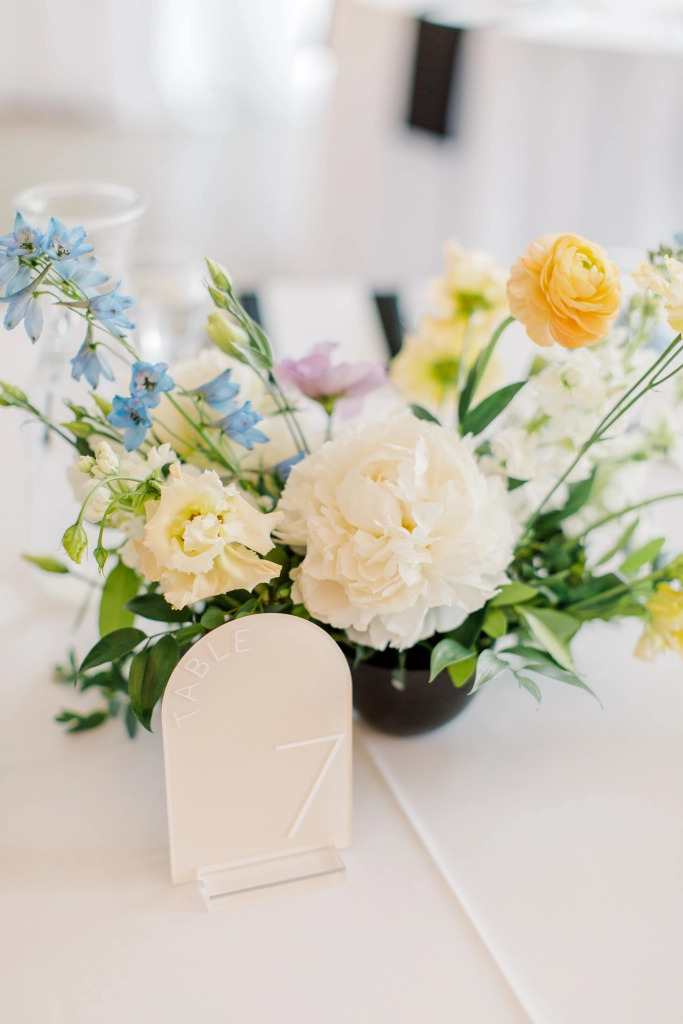Celebrating Inclusivity: Accommodating Neurodiverse Guests at Weddings – Tips from a Milwaukee Wedding Planner

As today is World Autism Day and April is Autism Awareness Month, it is crucial to shine a light on inclusivity and celebrate the diversity within our communities. One area where inclusivity often takes center stage is in wedding celebrations. Weddings are celebratory gatherings where loved ones, regardless of neurodiversity, come together to share in the joyous occasion. However, sometimes attending a large, loud, and crowded event can be overwhelming for neurodiverse guests, including those with autism. Either their needs are often overlooked, causing them to decline the invitation or need to leave early. This Autism Awareness Month, let’s explore some thoughtful ways wedding couples, with the assistance of a Milwaukee Wedding Planner, can ensure that their special day is inclusive for everyone.

This is an issue that I am personally very passionate about as I parent a neurodiverse child (he has the dual diagnosis of Autism and ADHD) and I was also diagnosed with ADHD as an adult. Neurodiversity is a term that is used to described differences in the way people’s brains work. The idea is that there is no “correct” way for the brain to work. Instead, there is a wide range of ways that people perceive and respond to the world. These differences can sometimes make attending events difficult for people due to sensory and processing differences. Several recognized types of neurodivergence include autism, dyslexia, dyscalculia (the number/math type of dyslexia), epilepsy, hyperlexia, dyspraxia, ADHD, obsessive-compulsive disorder (OCD) and Tourette syndrome. People think that 15 to 20% of the world’s population is neurodivergent, and that number is climbing as knowledge and awareness grow.
Here are some ideas on how wedding couples can be inclusive of their guests who are neurodivergent:
- Communication is Key – Open communication is the cornerstone of inclusivity. Reach out to their guests ahead of time to inquire about any specific needs or accommodations they may require. You can have a place on your wedding website that has an open ended question guests can respond to regarding accommodations needed. Whether it’s dietary restrictions, sensory sensitivities, or other preferences/needs, knowing in advance allows you to make necessary arrangements without causing discomfort or stress for your guests.
- Sensory Friendly Environment – Sensory intensity associated with neurodivergence can impact all senses– taste, touch, smell–but sound sensitivities are particularly common. Weddings can be very overwhelming due to this. Consider creating a quiet space where guests can retreat if they need a break from the hustle and bustle. This area could include comfortable seating, calming decor, noise canceling headphones or a basket of weighted blankets can make a significant difference!
- Visual Aids and Timelines – For guests who benefit from visual aids or structured routines, providing a detailed wedding itinerary or timeline can be incredibly helpful. This allows neurodiverse guests to anticipate what to expect throughout the day, reducing anxiety and uncertainty. Visual aids such as schedules, maps, and seating charts can enhance clarity and accessibility for all guests. Sharing the day’s timeline on your wedding website beforehand is a fantastic way to keep everyone informed and excited!
- Flexible Seating Options – Traditional seating arrangements may not always be comfortable for neurodiverse guests. Guests can freely choose their comfort zone with a variety of seating options, including traditional tables and cozy lounge areas. Additionally, consider providing alternative seating choices like bean bags or floor cushions to accommodate different sensory needs.
- Plan wedding entertainment with inclusivity in mind, incorporating activities appealing to diverse interests and abilities for an inclusive celebration. Remember not everyone loves dancing! This could include things like board games or an adult coloring book station! Ensuring all guests can comfortably join the festivities by offering various options tailored to their preferences promotes inclusivity.
- Thoughtful Food and Beverage Options – Take dietary restrictions and sensory sensitives into account when planning your wedding menu. Catering to diverse dietary needs, our menu boasts allergen-free and sensory-friendly options, ensuring everyone finds something delicious to relish. Clearly labeling food items with ingredients can also help guests make informed choices, especially those with dietary restrictions or allergies.
- Educate your Wedding Party and Vendors – Ensure that your wedding party and venue staff are aware of the importance of inclusivity and how to support your neurodiverse guests effectively. Giving your photographer a heads up about a neurodivergent family member who might not look at the camera when asked or your DJ a heads up about volume levels goes a long way! This fosters an environment of respect and inclusivity!

Photography – https://sabrinakeepman.com/ Floral – https://feistyflowers.com/
As we celebrate love and unity on our wedding days, let’s also celebrate diversity and inclusivity. Many different kinds of people make up the world. By taking proactive steps to accommodate neurodiverse guests, wedding couples can create a welcoming environment where every individual feels valued and included. Whether it’s ensuring wheelchair accessibility, providing sensory-friendly spaces, or offering alternative communication methods, embracing diversity enriches the experience for all involved. As a Milwaukee Wedding Planner, I prioritize creating weddings that reflect the beauty of love in all its forms and the richness of the human experience.
Related
Leave a Reply Cancel reply
© Heather Farr Events, 2023 | Site Credits
© Heather Farr Events, 2023 | Brand + Web Design by EPDesign | Site Credits